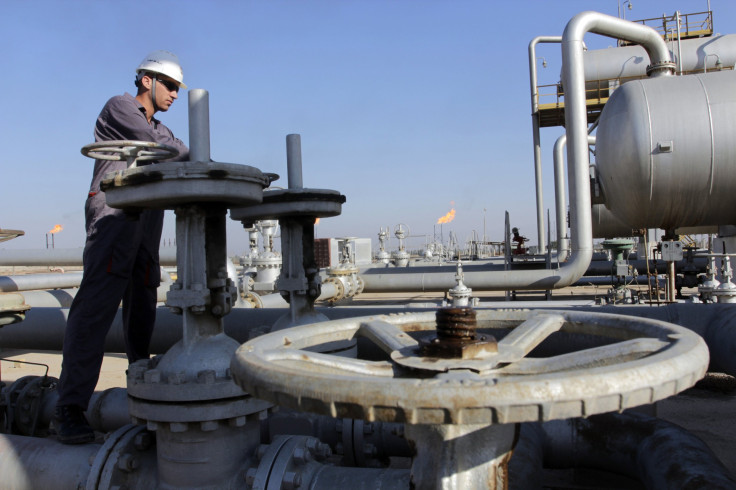Oil Prices Drop, But Could Buffer Markets From Sudden Disruptions, Price Spikes Near Term

Global oil supplies are so plentiful that even sudden geopolitical disruptions won’t reverse plummeting crude prices. That cushion represents a significant change from just seven months ago, when an outbreak of violence in Iraq threatened to choke the country’s production and drove Brent crude, an international benchmark, to above $115 a barrel. Today, by contrast, the oil surplus has helped diminish the effects of recent clashes in Libya on world oil prices, even as that nation’s exports decline due to fighting between government troops and rival militias.
Recent market conditions should last for at least through the first half of the year. Oil output is expected to surge in the coming months even as worldwide demand continues to soften and prices drop below 5½-year lows, analysts say.
“It’s hard to see much improvement in oil fundamentals near term,” Adam Longson, a commodities analyst at Morgan Stanley in New York, said in a Monday research note.
Brent crude dropped below $53 a barrel Monday -- its lowest level since May 2009 -- amid reports that Russian and Iraqi oil outputs neared peak levels last year. Prices fell further Tuesday to $51.23 a barrel before recovering slightly to $52.12. West Texas Intermediate, a U.S. benchmark, slipped to $48.54 a barrel Tuesday morning after falling below $50 Monday for the first time since April 2009. Signs of slower-than-expected U.S. manufacturing growth and a weakening euro also helped drive the price crash.
“We’re in a position where there’s lots of supply and weak demand growth, and that’s the problem that’s causing the drop in prices at the moment,” said David Elmes, who heads the Warwick Business School’s Global Energy Research Network in England.
U.S. gasoline prices have followed suit, sliding to their lowest averages in five years. A gallon of gas cost $2.214 on average across the country Monday, down more than $1.10 compared to a year ago, according to federal energy statistics. Price tracker Gasbuddy.com forecasts gas prices will average $2.64 a gallon this year, or 70 cents less than in 2014.
Elmes said that in the past, oil-producing nations opted to curb their crude output during periods of high supply, helping to shore up prices. But countries so far have shown no signs of drastically scaling back in the near term, either because governments want to protect their market share, as in Saudi Arabia's case, or because leaders in faltering economies such as Russia desperately need to raise revenues.
Russian oil production rose 0.3 percent last month to more than 10.6 million barrels a day, a post-Soviet record, according to Energy Ministry data cited by media outlets. Oil and gas funds about half the country’s budget, and declining crude prices have helped push the Russian economy into a recession.
In Iraq, oil exports hit their highest levels since the 1980s, with shipments reaching 2.94 million a day in December, a government spokesman told Bloomberg News. Last summer, an armed insurgency threatened to disrupt major oil production sites and export facilities in the country’s south, but the worst-case-scenario never materialized.
“Terrorist activities, including oil theft, had little impact on Iraq’s oil production,” Fadel Gheit, managing director of oil and gas research at Oppenheimer & Co. in New York, said by email. In 2015, “Iraq production is expected to remain flat and could increase slightly.”
Output this year is expected to rise in the United States, Canada, Latin America and West Africa, Longson said. Iran could also boost its exports by about 500,000 barrels a day “in a matter of months” if Western sanctions are lifted and a tentative nuclear agreement with the U.S. advances, according to his research note.
Saudi Arabia, the world’s biggest oil exporter, recently signaled it wouldn’t scale back its crude production, despite growing pleas from other members of the Organization of Petroleum Exporting Countries, including Venezuela. The Arab giant’s 2015 budget assumed an oil price of around $60 a barrel, meaning the nation’s planners believe the economy can withstand lower revenues from cheaper crude, according to a Monday research note by Capital Economics.
As major oil countries press ahead with supplies, private oil companies are being forced to scale back production, Elmes said. “Their first measure is to cancel or postpone the projects that will deliver future production, in the hope this sends appropriate signals to the markets about medium-term supply,” he said.
In the U.S., ConocoPhillips said in December that it would cut investment spending by 20 percent in 2015, citing “the current environment.” Continental Resources Inc., an Oklahoma-based oil producer, cut its 2015 capital budget nearly in half, revising its spending plans to $2.7 billion this year, while Halliburton Co., the Houston oilfield services company, announced it would cut 1,000 positions as it reined in production plans.
A reduction in private sector production could help to boost oil prices slightly, Elmes said. “As companies start to react and postpone and cancel projects, markets do see the prospect of reducing supply within a matter of months,” he said.
© Copyright IBTimes 2024. All rights reserved.





















